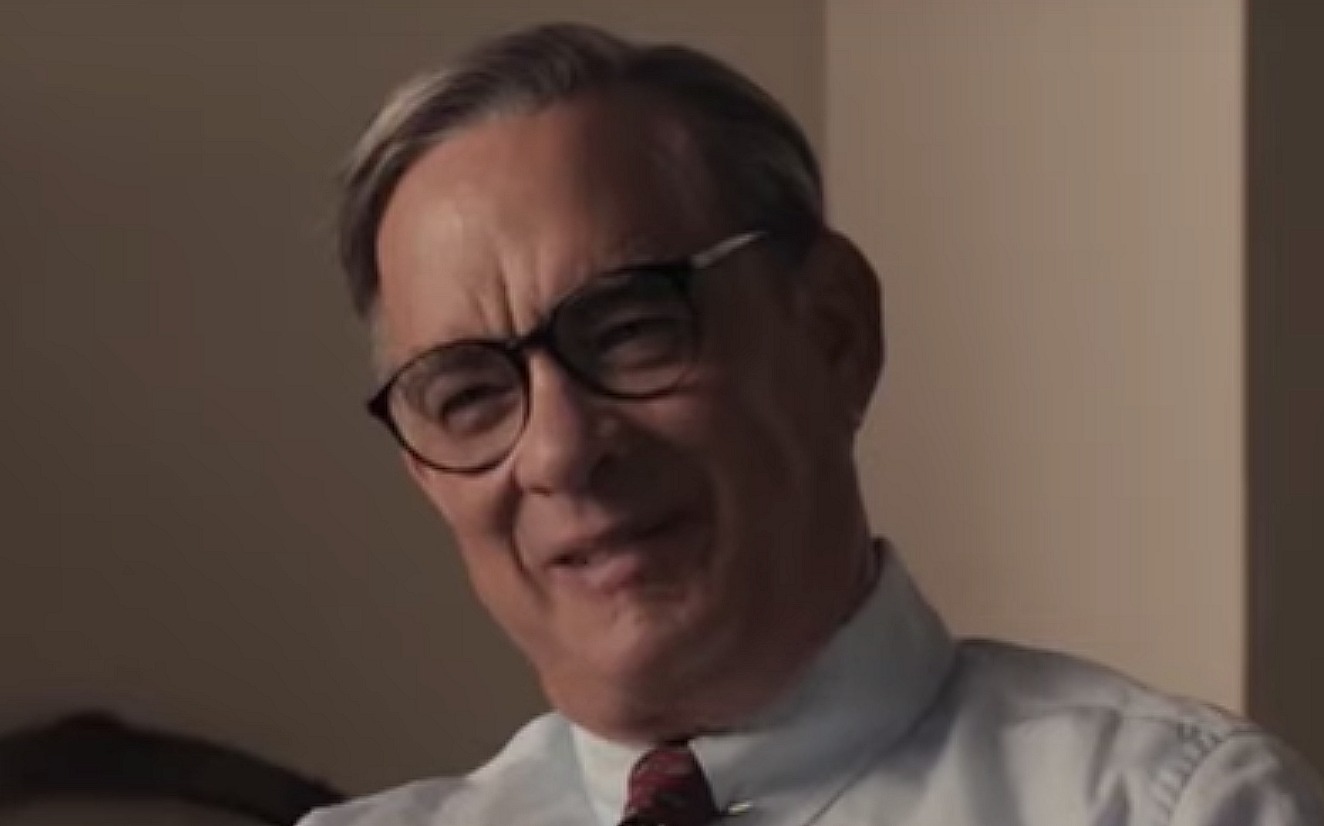2:15 pm Update: Did I imagine that Indiewire‘s Anne Thompson is reported that as far as an awards campaign for A Beautiful Day in the Neighborhood is concerned, Sony intends to push Matthew Rhys in lead and Tom Hanks in supporting? Nope, I didn’t.
Thompson has written that campaigning Rhys as a lead is “fair,” considering that he plays an Esquire writer who profiles Hanks’ Fred Rogers. “The movie is really about him,” Thompson asserts.
Urging Academy and SAG voters to consider Rhys as a leading contender for the Best Actor Oscar might be “fair”, but this doesn’t sound like an especially savvy decision on Sony’s part. Running Hanks in supporting argues with the award-season strategizing that led to Anthony Hopkins‘ Hannibal Lecter performance in The Silence of the Lambs being nominated for and winning the Best Actor Oscar.

Hollywood Reporter critic Todd McCarthy is claiming that A Beautiful Day in the Neighborhood is “ultimately Hanks’ show, and Hanks’ show alone.”
Some weeks ago there was some discussion about whether or not Hanks’ Beautiful Day performance would qualify as a lead, as he has less screen time than Rhys’ “Lloyd Vogel” character, an Esquire journalist (based on Tom Junod) who interviews Hanks’ Fred Rogers.
Jordan Ruimy said this morning that Rhys “is in practically every scene and Hanks isn’t, but Rhys’ story is the weak part…the movie lags whenever Hanks isn’t on-screen.”
HE response: Based on these and other impressions, Hanks is apparently Anthony Hopkins in Silence of the Lambs — a performance that sinks in and dominates by sheer force of personality. Alongside this the measure of screen time is nothing.
If Sony is determined to pursue the strategy that Thompson has reported on, Hanks will stand a half-decent chance of losing to Once Upon A Time in Hollywood‘s Brad Pitt in Supporting. (OUATIH is, of course, also a Sony film.) And the allegedly mopey Rhys probably won’t be nominated for Best Actor at all.
If Sony reverses strategy and runs Hanks as Best Actor candidate as la Hopkins in Silence, he could win. Yes, he would be facing tough competition from Joaquin Pheonix‘s Joker performance, but he would almost certainly be supported by the Academy voters who gave the Best Picture Oscar to Green Book.
THR‘s McCarthy: There’s no question that Hanks is perfect in the part, as the actor’s amiability and unquestionable sincerity make for an ideal match with [Rogers]’ unique television personality. [But] Marielle Heller’s film is a more modest achievement, sympathetic and yet entirely predictable in its dramatic trajectory of making a believer of an angry, cynical journalist.”
From Owen Gleiberman’s Variety review:
“As Hanks plays him, Rogers a different sort of alchemist. Lloyd sits down to interview him, asking all sorts of artfully probing questions, only to discover, to his quiet dismay, that Rogers is more interested in interviewing him. Beneath the children’s-host façade, Fred is like a minister crossed with a psychiatrist crossed with a Zen guru. He tries to coax out Lloyd’s demons and awaken him to the magic of each moment.
“As the movie presents it, the fundamental oddity of Fred Rogers’ personality is that he relates to children so much because he himself is an overgrown child. That, in essence, has been the joke about him for 50 years. But what the film captures is that Fred, beneath his dry parson’s manners, is so in touch with his inner child because he recognizes that children are radically richer than we give them credit for.
“We focus, says Fred, on what they’re going to be. But they already are…themselves. And the adults they turn into are still, deep down, those same children, as primal in their vulnerability and sadness, their petulance and joy, their innocence and love.”

